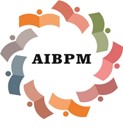Self-Reliance with Nature: Development of Subak Ecotourism as an Effort to Empower the Local Community in Siangan Village, Gianyar District, Gianyar Regency
DOI:
https://doi.org/10.31940/bp.v9i2.118-123Keywords:
community empowerment, nature, self-reliance, Subak ecotourism, sustainable development, Siangan VillageAbstract
The research endeavors to explore the potential of Subak ecotourism as a catalyst for community empowerment and sustainable development within Siangan Village. The research methodology adopts a comprehensive approach, delving into the Subak system, a traditional agricultural water management system, and its synergy with ecotourism activities. Data collection methods encompass interviews, surveys, and observations, strategically applied to amass insights into the current status of ecotourism development and its ramifications on the local community. The study's findings underscore the substantial role of Subak ecotourism in fostering community empowerment. Through the promotion of sustainable practices, preservation of cultural heritage, and active community engagement in ecotourism endeavors, the initiative aims to elevate the economic, social, and environmental well-being of Siangan Village's residents. Furthermore, it seeks to instill a sense of pride and ownership within the local community, subsequently stimulating increased community involvement and empowerment. The research also delves into the potential challenges and opportunities that may manifest during the implementation of the Subak ecotourism project. The results emphasize the necessity of collaborative efforts among diverse stakeholders, including local governmental bodies, community members, and tourism organizations, to guarantee the success and enduring sustainability of the undertaking. Anticipated outcomes of this study are expected to augment the existing knowledge base on community-centered ecotourism development, particularly in the context of Subak systems. These findings are poised to provide valuable guidance to policymakers, researchers, and practitioners in formulating strategies for the sustainable advancement of ecotourism that effectively empowers local communities while safeguarding natural and cultural heritage. In conclusion, this research contributes to the growing body of literature on community-based ecotourism by providing insights into the unique dynamics and potential of Subak ecotourism in Siangan Village. By embracing sustainable practices and preserving cultural heritage, this initiative holds promise as a model for empowering communities while ensuring the preservation of their natural and cultural treasures.










